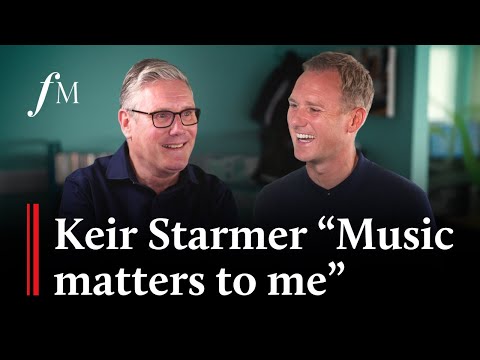Our Terms & Conditions | Our Privacy Policy
GCSE music entries rise for two consecutive years after historic decline
21 August 2025, 17:28
Students playing musical instruments during music lesson at Royal High School Bath.
Picture:
Alamy

Today’s GCSE results reveal that music has one of the highest increases in uptake, of any subject in 2025.
More than 38,000 students took GCSE music in 2025, an increase of 6.1% compared to 2024.
In 2024, there was an 8.7% growth in entries compared to the previous year.
Director of the OCR exam board, Miles McGinley, coined the increase as a ‘post covid comeback’.
Chief Executive of the Independent Society of Musicians (ISM), Deborah Annetts welcomed the ‘modest rise’ in entries.
Figures published by the Joint Council of Qualifications and Ofqual show that while the 10 most studied GCSE subjects remain static, there have been significant changes elsewhere. Performing Arts achieved 8.3% more entries between 2024-2025, according to The Times, while History, Religious Studies and Computing all suffered a drop in entrants.
Read more: A-level music entries fall to historic low, following 15 years of decline
Students Receive GCSE Results In England And Wales.
Picture:
Getty
Despite this continued increase from last year, figures show there are still 13,000 fewer entries since the launch of EBacc in 2010.
Many arts subjects have suffered a decrease in exam entries over the last decade following the introduction of the EBacc, a selection of recommended GCSE subjects decided by the Department for Education aimed at ‘keeping options open for further study and future careers’.
These subjects include English language and English literature, Maths, Science, Computer science, History or Geography, and a language.
A study from the ISM confirmed that music GCSE entries remain at historically low levels. The body indicates that ‘without decisive policy change’, entries for arts subjects could stall.
Deborah Annetts thanked music students and teachers, adding: “The modest rise in entries is proof that interest in music among young people remains strong when opportunities exist.”

“I want to ensure that music counts” – Prime Minister on arts education funding | Classic FM
Looking back to recent curriculum changes, in 2022 the previous government introduced a National Plan for Music Education with the aim of providing quality curriculums for all students, with access to one hour a week of music teaching.
However, in 2024 the Cultural Learning Alliance (CLA) published a report stating that 42% of schools did not enter any pupils into music GCSE. The vacancy rate for music teachers also increased sixfold in the years 2022-2023.
Although the increase was described as a ‘small glimmer of good news for music’, the CLA said the main cause of the low turnout was a 34% decrease in the uptake of vocational courses.
In an interview with Classic FM, Sir Keir Starmer announced that he intends to £88 million into clubs and activities including music and sports.
The Prime Minister told Dan Walker he wants music to ‘count towards the curriculum’.
With the slight increase in GCSE music entrants seeming to continue, there is a chance that significant funding could help maintain this trend.
Images are for reference only.Images and contents gathered automatic from google or 3rd party sources.All rights on the images and contents are with their legal original owners.



Comments are closed.